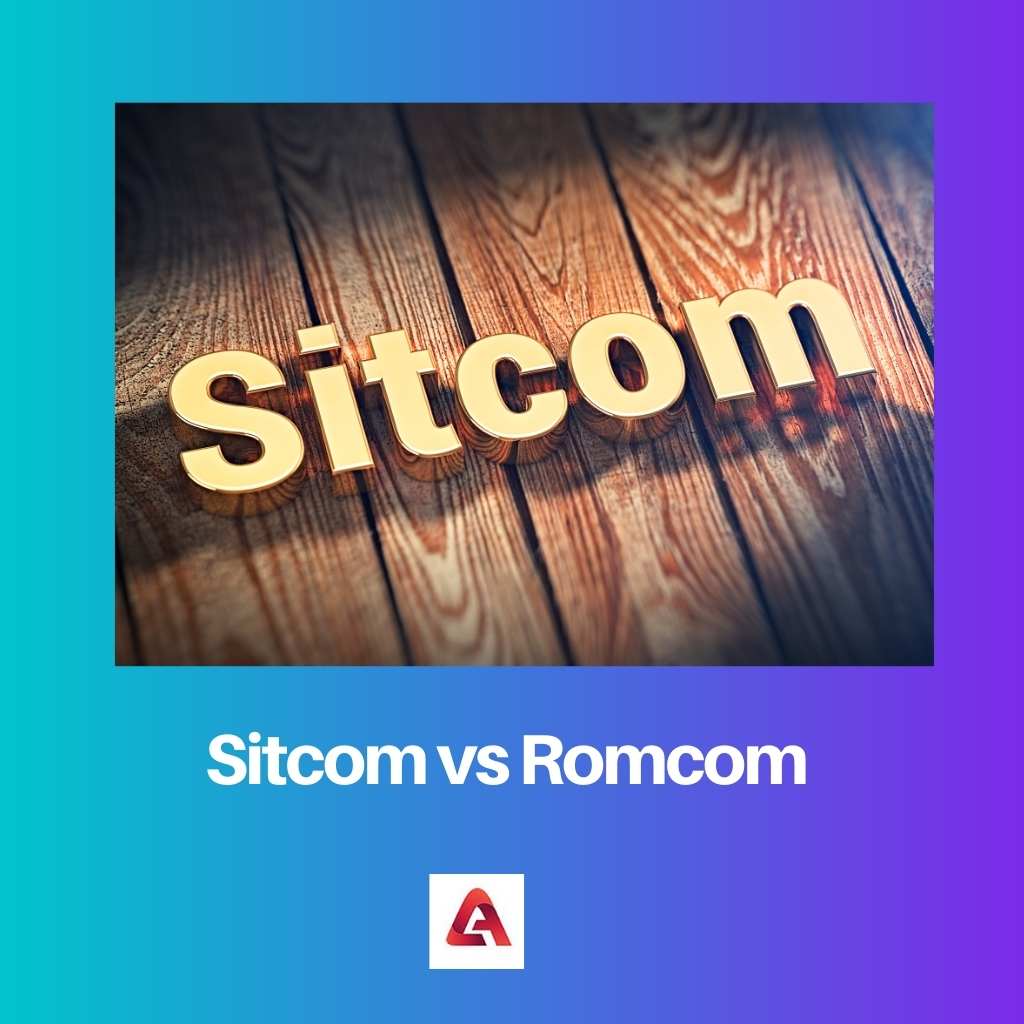Entertainment is the ideal way to escape from the fast-paced and stressful work environment since it provides you with anything and everything you want, from horror, thrillers, and sci-fi, as well as music, dancing, bands, plays, and other pursuits that are enjoyed by almost everyone.
TV shows and movies are the most popular forms of electronic media. Sitcom and romcom are two such genre of entertainment that is gaining popularity day by day.
Key Takeaways
- Sitcoms are comedic television series that focuses on a group of characters and their daily lives, while romcoms are romantic comedy films that center on a developing love story.
- Sitcoms feature episodic storytelling, while romcoms follow a more linear narrative structure.
- Sitcoms can span multiple seasons and years, while romcoms have a defined beginning and end within a single film.
Sitcom vs Romcom
A sitcom is a television show focused on comedy and humor, with a recurring cast of characters in various comedic situations. A romcom is a romantic comedy that centers on a romantic relationship between two characters and the comedic situations as they steer their relationship.

A sitcom, short for situational comedy, is a type of humor in which a set of characters is maintained from episode to episode.
Sketch comedy, in which a troupe may utilize fresh characters in each sketch, and stand-up comedy, in which a comic makes jokes and tales to an audience, are two types of sitcoms.
Romantic comedy (romcom) is a type of humor and slice-of-life literature that focuses on cheerful, amusing narrative lines focused on romantic concepts such as how real love can overcome most hardships.
Its “main distinguishing element is a love narrative in which two likeable and well-matched lovers are united or reconciled,” according to one dictionary description.
Comparison Table
| Parameters of Comparison | Sitcom | Romcom |
|---|---|---|
| Full form | Situational comedy | Romantic comedy |
| Type of Media | Episodic television series | Movie |
| Average Run-time | 22-30 minutes long | 107 minutes |
| Protagonists | 4-5 main characters | Only 2 main characters |
| Example | Roseanne, Parks and Recreation, Friends | Sleepless in Seattle, Broadcast News, It Happened One Night |
What is Sitcom?
The sitcom is the most popular type of television show. The number of screenplays created and produced for this form in the previous fifty years is estimated to be over 27,000, according to a conservative estimate.
The word “sitcom” is divisive among critics when it comes to categorizing shows that have aired since the turn of the century.
Many modern American comedies have a single-camera setup and don’t include a laugh track, making them more like dramedy series from the 1980s and 1990s than classic sitcoms.
Sitcoms began on the radio but have since become one of television’s most popular storytelling styles. Depending on the production structure, a situational comedy television show may be taped in front of a studio audience.
A laugh track can be used to mimic or intensify the impression of a live studio audience.
Sketch comedy, in which a troupe may utilize fresh characters in each sketch, and stand-up comedy, in which a comic makes jokes and tales to an audience, are two types of sitcoms.
Although sitcom genres have evolved throughout time, most are still focused on a family, office, or other institution, with the same cast of opposing individuals reuniting in each episode.
What is Romcom?
Romantic comedy films are a kind of comedy that blends romantic and comedic elements. They may also have screwball comedy characteristics.
A romantic comedy is a kind of screenplay that blends two genres rather than creating a new one.
The two lovers in a classic romantic comedy are youthful, charming, and look to be suited for each other, but they are held apart by some perplexing circumstances until they are finally reunited, conquering all difficulties.
A joyful ending in the form of a fairy tale is a common feature.
A romantic comedy’s core narrative is that two characters meet, then part ways due to an argument or other stumbling block, only to understand their love for one another and reconnect later.
Sometimes the two protagonists meet and fall in love, only to face obstacles to their relationship later on.
They are sometimes afraid to get romantically connected because they feel they do not like each other, one of them also has a partner or social constraints.
One of the parties goes out of their way (referred to as a great gesture) to locate the other and confess their love.
Then they confess their love for each other, possibly with some comedic tension or difficulty, and the film concludes happily.
Main Differences Between Sitcom and Romcom
- The full form of a sitcom is a situational comedy and the full form of a rom-com is a romantic comedy.
- Sitcoms are in the form of TV shows whereas romcoms are more than not can be seen in the form of movies.
- Sitcom episodes are about 22 minutes long and rom-com movies are more than 100- 120 minutes long.
- Sitcoms can have more than 2 main characters while romcoms have only 2 protagonists.
- Friends is one of the most famous example of a sitcom and How to lose a guy in 10 days is one of the most popular rom-com movie of all times.

